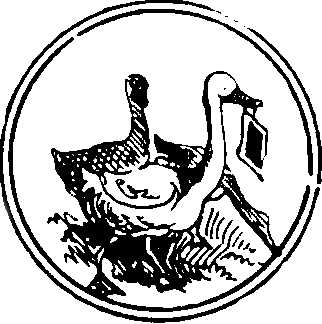API¶
This is the situation Application Programming Interface (API). This document provides a reference for using situation to write your own code.
situation¶
-
situation.id_generator(size=8, chars=None)[source]¶ Create a random sequence of letters and numbers.
Parameters: - size (int) – the desired length of the sequence
- chars (str) – the eligible character set to draw from when picking random characters
Returns: a string with the random sequence
Resource¶
-
class
situation.Resource(name, url, publisher, author[, description])[source]¶ A Resource is an authoritative information source from which evidence is drawn.
Usually, a Resource is an artifact like a newspaper article, a report, or another document. These documents usually have an associated URL.
There may be many Resource from a single publisher or organization. Currently, the publisher is not a special component of the situation ontology. If it is necessary to include a publisher in a model, represent it as a Group.
Parameters: - id (int) – the database object identifier
- unique (str) – alpha-numeric code for shorthand identifier
- name (str) – what the resource is called (usually the title or headline)
- url (str) – the canonical URL for the resource
- publisher (str) – the name of the institution whose reputation backs this resource
- author (str) – the name of the author(s)
- description (str) – a short summary of this resource
Excerpt¶
-
class
situation.Excerpt(content, resource[, xpath])[source]¶ An Excerpt is a direct quote that comes from any Resource.
Any time an Excerpt is used, that Excerpt must be directly quotable from a Resource.
Parameters: - id (int) – the database object identifier
- unique (str) – alpha-numeric code for shorthand identifier
- content (str) – the actual quoted material of the excerpt
- resource (Resource) – the Resource from which this excerpt comes
- xpath (str) – the xpath leading to this excerpt within the Resource
Person¶
-
class
situation.Person(name, alias[, excerpts, events, places, possessions, properties, groups, acquaintances])[source]¶ A Person is an actor in a Situation.
Parameters: - id (int) – the database object identifier
- unique (str) – alpha-numeric code for shorthand identifier
- name (str) – what the person is called
- alias (str) – that other thing the person is called
- slug (str) – a URL-friendly identifier
- excerpts ([Excerpt]) – excerpts related to this Person
- events ([Event]) – events related to this Person
- places ([Place]) – places related to this Person
- possessions ([Item]) – items related to this Person
- properties ([Place]) – places owned by this Person
- groups ([Group]) – groups this Person is a member of
- acquaintances ([Acquaintance]) – people this Person knows
Acquaintance¶
Place¶
-
class
situation.Place(name, description, address, lat, lon[, owners, excerpts])[source]¶ A Place is a location.
Parameters: - id (int) – the database object identifier
- unique (str) – alpha-numeric code for shorthand identifier
- name (str) – what the place is called
- description (str) – a short summary of this place
- address (str) – a human-readable postal address
- lat (float) – latitude
- lon (float) – longitudel
- owners ([Person]) – the property owner(s)
- excerpts ([Excerpt]) – excerpts related to this Place
Item¶
Group¶
-
class
situation.Group(name[, members, excerpts])[source]¶ A Group is a collection of Persons who are associated with one another.
Membership in a group implies a many-to-many relationship between the members. A group is different from an Acquaintance; it is bi-directional, not uni-directional.
Parameters:
Event¶
-
class
situation.Event(name[, description, place, phone, timestamp, actors, excerpts, items])[source]¶ An Event is an occurrence that somehow alters the Situation.
Parameters: - id (int) – the database object identifier
- unique (str) – alpha-numeric code for shorthand identifier
- name (str) – what the event is called
- description (str) – a short summary of this item
- place (Place) – null
- phone (bool) – true if this event is a phone call
- timestamp (DateTime) – null
- actors ([Person]) – null
- excerpts ([Excerpt]) – excerpts related to this Event
- items ([Item]) – null
situation.io¶
-
situation.io.dump()[source]¶ Build a dictionary containing the entire Situation.
Returns: a Dict with the situation as nested Dictionaries.
-
situation.io.save(filename)[source]¶ Write the Situation to a JSON file.
Parameters: filename (str) – the name of the file to output to.
